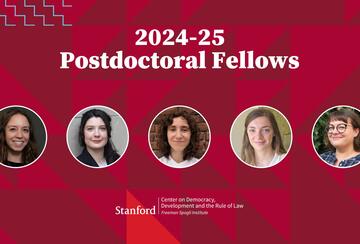News
Master's students Jiwon Bang (MA '24, East Asian Studies) and Jong Beom "JB" Lim (MS '25 Computer Science; BAS '24 International Relations and Mathematical Computational Science) are the recipients of the 13th annual Korea Program Prize for Writing in Korean Studies for their thesis papers.
This brief presents the findings of an experiment that measures how persuasive AI-generated propaganda is compared to foreign propaganda articles written by humans.

Middle school teachers participate in summer institute on East Asia.

The course taught by Mona Tajali will examine feminist theories and concepts that can help students better appreciate the diversity and heterogeneity among feminisms, as well as the role and potential of cross-border solidarity and collective action around various feminist concerns.
A leading sociologist of Korea, Professor Chang’s scholarship has influenced a number of subfields such as democratization, social movements, political repression, and demographic transition.

Tsutsui, whose research focuses on social movements, human rights, political sociology, and Japanese society, joins the IUC as it recently celebrated its 60th anniversary.
The Center on Democracy, Development and the Rule of Law (CDDRL) is pleased to welcome five postdoctoral fellows who will be joining us for the 2024-25 academic year. These scholars will spend the academic year focusing on the Center's four program areas of democracy, development, evaluating the efficacy of democracy promotion, and rule of law.

Stanford researchers Gi-Wook Shin and Haley Gordon propose a novel framework for cross-national understanding of human resource development and a roadmap for countries to improve their talent development strategies.
We sat down with Professor Loyalka to learn more about his journey to Stanford, his passion for international comparative education and his advice for aspiring young researchers.
The Supreme Court ended its 2024 term with major rulings affecting federal agencies. SHP’s Michelle Mello writes in a JAMA viewpoint that while these rulings have critical ramifications for health agencies, the outlook is more complex than it might appear.
The future of Russia and Ukraine
How the present conflict plays out has important implications for other former Soviet states and for the future of the E.U., says political scientist Kathryn Stoner.

Researchers including Stanford sociologist Kiyoteru Tsutsui, the deputy director of APARC and director of the Japan Program at APARC, find that geopolitical rivalries and alliances significantly shape citizen perceptions of immigrants.

New grants to inform U.S. Asia policy and fuel cross-disciplinary research on Asia’s role in the global system of the 21st century.
We are thrilled to welcome thirteen outstanding students, who together represent thirteen different majors and minors, to our Honors Program in International Security Studies.

Does Attorney-Client Privilege Put Some People Above the Law? Lecturer Erik Jensen and Stanford Law and Policy Lab students Sarah Manny and Kyrylo Korol expose how attorney-client privilege can undermine the rule of law.
The Future is Urban
By 2050, seven out of every 10 people worldwide will live in cities. Stanford researchers are seeking ways to make them stable and sustainable.

Innovative project brings together first-ever representative sample of first-time voters from across the country to debate the key issues of our time.
The annual Outstanding Statistical Application Award recognizes the authors of a paper that demonstrates an outstanding application of statistics in any substantive field.
MIT economist Jon Gruber tells Boston Public Radio that a new fertility study by SHP's Maria Polyakova and Stanford colleagues gives the first "solid evidence" regarding the impact that infertility can have on families.

Stanford’s Asia-Pacific Research Center Invites Applications for Fall 2025 Asia Studies Fellowships
The Center offers multiple fellowships for Asia researchers to begin in Autumn quarter 2025. These include postdoctoral fellowships on Asia-focused health policy, contemporary Japan, and the Asia-Pacific region, postdoctoral fellowships and visiting scholar positions with the Stanford Next Asia Policy Lab, a visiting scholar position on contemporary Taiwan, and fellowships for experts on Southeast Asia.

In a panel moderated by Didi Kuo, Bruce Cain, Hakeem Jefferson, and Brandice Canes-Wrone discussed the structural features of American democracy and addressed the issues, strategies, and stakes central to November’s race.

Fuentes, a lawyer, human rights advocate, and agent of social change in Venezuela, is a member of the 2024 class of Fisher Family Summer Fellows at the Center on Democracy, Development and the Rule of Law.

A new paper from Charles Mok of GDPi examines the current landscape of Taiwan’s Internet Infrastructure




![[Left to right]: Michael McFaul, Marshall Burke, Steven Pifer, Oriana Skylar Mastro, Didi Kuo, and Amichai Magen on stage.](https://fsi9-prod.s3.us-west-1.amazonaws.com/s3fs-public/styles/480x270/public/2024-10/fsi_reunion_2024_panel_hero.png?h=c4d9845d&itok=s9RgEIqP)










